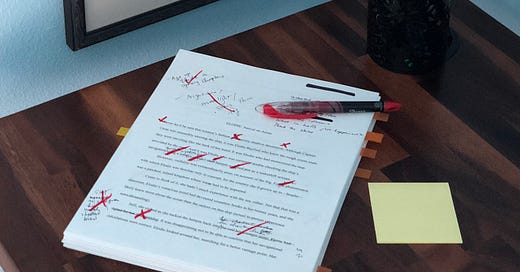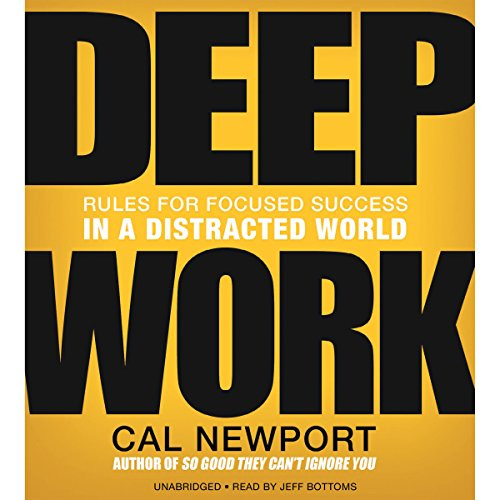
How I Wrote Four Novels in 365 Days
Becoming a more efficient and productive writer in a world of dinging notifications and constant distractions
Helloooo, you beautiful, writerly souls!
I’m kicking things off today with the secret to how I wrote four books in 365 days:
Three Kisses, One Midnight - August 30, 2022 (Macmillan/Wednesday Books)
Damsel - April 18, 2023 (Penguin Random House/Random House Worlds)
Princess Private Eye - May 2, 2023 (Disney Books)
The Hundred Loves of Juliet - August 1, 2023 (Penguin Random House/Del Rey)
The problem these days is that there are so many things that distract us. In fact, our brains have become trained to need distraction. Because of social media, the 24-hour news cycle, text messages, and the constant dinging and pinging of our phones, it’s become harder and harder to just sit and focus on one thing.
Unfortunately, sitting and focusing on just one thing is exactly what we need to do in order to write a book. And if you want to be efficient and productive—which is what you need to do if you want to be able to make a full-time, paying career out of fiction writing—you need to re-learn how to shut off the external noise and listen to your internal voice.
Enter: Deep Work by Cal Newport. I swear to you, this is the reason I got out of my creative slump and managed to write four completely different books in one year.
I highly, highly recommend anyone in a creative field to read this book. I think everyone will get something different out of it. But here are the notes that I took from Deep Work:
1. Write down your goals. What would your ideal use of time look like? What are your career goals? Personal wants/needs?
As an example, this is what I wrote down for my goals (yours will obviously be different):
write beautiful, thoughtful, bestselling books
be prolific in my career
stop wasting time so that I can do my work, then have plenty of undistracted, quality time with my family
less yang, more quiet & peace
keep up with/connect deeply with friends
2. Schedule your work day
Set time boundaries when you know you’ll be writing. This is “deep work” time.
I tell myself this time is for me. It’s a precious gift, and I deserve it. That helps me not to squander each gift of time.
Have quantifiable writing goals for each Deep Work Session.
it can be as simple as “today I will write two pages” or “today I will brainstorm how to untangle this plot problem.”
Just having a sense of direction will help your focus immensely. It also gives you a little dopamine hit when you realize you have successfully focused on your writing goal, and that reinforces how wonderfully productive Deep Work Sessions can be.
Turn off Wi-Fi and put your cell phone in a different room.
It’s going to be surprisingly hard at first not to constantly hop onto a news website or pull up Instagram. Your brain has been trained to crave distraction. You’re need to re-teach it how to sit still.
The first week I tried this, I didn’t make it more than 30 minutes per Deep Work Session before I caved and needed to turn my internet back on. But I kept at it and got better and better.
Now, if I’m in a Deep Work Session, I don’t turn on WiFi from 10am till 2:30pm. I write from 10am-11:30am, take a lunch break (without my phone!) and just think while I eat, then go back and work from 12:30pm-2:30pm. It is incredible how much you can get done when you learn to focus and train yourself that you will do nothing except write during your Deep Work Session.
Keep in mind that I write during the day while my daughter is in school. Your schedule will be different—for example, if you have a day job, your Deep Work time might be an hour or two each evening.
Deal with emails and texts after your Deep Work Session is done.
Really, most things can wait. I know there are some exceptions, but they are fewer than you think. Ask yourself if you’re just making excuses to avoid work… and if you are, then let those things wait. (Remember, this Deep Work time is a gift to yourself. Don’t let others steal it away.)
3. Bonus Skills
Productive Meditation - go for a walk or sit on the couch and focus single-mindedly on a problem.
You know how you’ll often solve story problems when you’re in the shower? That’s because your brain is focused on one thing, and you don’t have other stuff distracting you. That is unintentional but productive meditation.
I like to go on leisurely strolls around my neighborhood whenever I feel like I have writer’s block. It’s amazing how many times I’ve solved problems in my books’ magic systems or figured out how to fix a character just by walking. No music, only my thoughts. It’s such a lovely thing when you give your imagination permission to wander.
Turn off all notifications and badges (those little red circles) on your phone, even when you’re not writing.
But whyyyy? Because these train your brain to be constantly looking for quick dopamine hits. Our prehistoric minds were not made to cope with constant chiming (a reward! a new TikTok video!) and the “need” to check your email and texts every twenty minutes.
If you re-train your brain to not crave small distractions so often, you will see massive results in your ability to focus better in your work.
This was one of the biggest—and surprising—takeaways for me from Deep Work. Not only was I able to write without jumping over to Google News, I was actually three to four times more productive during each Deep Work Session.
Example: I used to consider it a great day if I wrote 1,000 words in the whole time my daughter was at school. But by implementing the recommendations in Deep Work—especially turning off notifications and badges to re-train my brain—I regularly wrote 3,500-4,000 words per day!
Get off social media
I did this for a year, and that’s when I wrote four books!
Admittedly, I’m back on Instagram nowadays… and I know I’m not as productive, writing-wise, as I was in the year I took off. I think it’s a balance that everyone needs to decide on for themselves. Do you need social media to establish your author brand and promote your books? To follow other authors and bookstagrammers you love?
Deep Work goes into a lot more detail about whether social media is worth it for writers. Definitely check out the book if you want to know more about that aspect of your career.
I hope that was helpful! And really, do buy a copy of Deep Work by Cal Newport or check it out from your library. The book has so much more than I could cover in a newsletter, including the science behind how our brains function in this highly fragmented and distracted world, how to ruthlessly say “no” to time-sucks, and more. Plus I believe in supporting authors for their work by buying their books!






